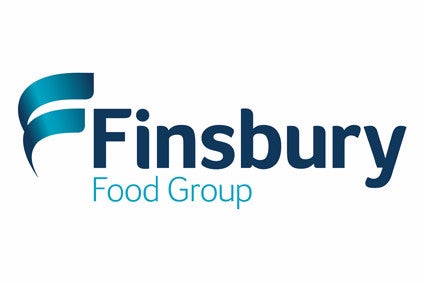
Finsbury Food Group, the UK bakery business, is still refraining from providing financial guidance until a clearer picture emerges behind the trajectory of Covid-19 and the outcome of trade negotiations with Europe over a Brexit deal.
The London-listed firm presented its annual results this morning (21 September) to the end of June showing a decline in revenues and profits. Finsbury said it is starting to see the early signs of a pick-up in the foodservice part of its business, which saw a “devastating” impact during the coronavirus-led lockdown.

Discover B2B Marketing That Performs
Combine business intelligence and editorial excellence to reach engaged professionals across 36 leading media platforms.
“We haven’t given guidance specifically but really we didn’t feel it was sensible to give guidance until we had a clearer view on Covid and the winter and the Brexit negotiations,” CEO John Duffy told just-food. “Once we’ve got a bit more clarity on those we’ll be able to go back to giving guidance.”
In Finsbury’s earnings commentary today, the company said sales in foodservice (20% of group sales last year) and food-to-go improved in the fourth quarter to around 39% of year-earlier levels, albeit Finsbury had to adjust some capacity from out-of-home into retail.
Duffy added: “We had a budget in place for the year in July. We’ve got quite a bit of sensitivity upside and downside in that depending on what happens on the demand front. We are in pretty good shape for the current year and we are doing a bit better than we feared in our worst-case scenarios because sales have been a bit stronger, particularly in the foodservice channel.
“It was initially pretty devastating during the original lockdown and then it steadily improved during our final quarters. The first couple of months of our new financial year – July and August – it strengthened really really immeasurably. From August, with ‘eat-out to help-out’, we were back to sort of getting on for 80% of normal levels.”

US Tariffs are shifting - will you react or anticipate?
Don’t let policy changes catch you off guard. Stay proactive with real-time data and expert analysis.
By GlobalDataDuffy explained the measures the company has taken to deal with Covid-19, especially now cases are starting to rise again in the UK and Europe where Finsbury conducts its business.
“We have really set our stall – we have taken out some capacity, we’ve introduced the ability to switch some of our buns and rolls capacity, which is the bulk of our foodservice business, into retail. But we remain under-capacity, so we’ve taken some structural capacity out, we’ve taken some overheads out and tried to ensure that we are able to be a bit more responsive and more flexible to a demand pattern that really for the next three or four months is going to remain very difficult to predict.”
Finsbury’s revenues in the year to 27 June dropped 2.8% to GBP306.3m (US$391.6m), it said this morning. Adjusted EBITDA declined 4.4% to GBP24.4m, while adjusted profit before tax fell 12.9% to GBP13.9m.
While Brexit has taken a backseat to the Covid-19 pandemic since March, it is now becoming of more relevance again as the end of the UK’s year-long transition period to finally move from the EU’s grip approaches in December.
Duffy pointed to the pound’s exchange rate and tariffs as the biggest concerns for Finsbury ahead of the 31 December deadline for a trade deal between the UK and the EU.
“We are prepared as we can be,” he said. “It’s about 10-11% of our business, and so, for an export point of view, we’ve taken all the reasonable precautions. The big risk with Brexit is probably tariffs and a sterling devaluation moving to significant input cost inflation, so that’s more difficult to predict.”
Finsbury has a couple of factories in Poland, where it acquired free-from bakery producer Ultrapharm in 2018. Half of Ultrapharm’s production and sales are in the UK destined for domestic customers, while the other half comes out of Poland for European accounts, “so we are fine on that from a Brexit perspective”, Duffy said.
He added with respect to plans for Poland: “We’ve put in quite a lot of capacity in our Polish factory and in our free-from business so we hoping to expand that with a new sales force in place in Poland to look at the local market there and to exploit that local market as well as the existing customer base that we’ve got elsewhere in Europe.”
Despite the advent of a potential recession, Duffy is confident demand for free-from bakery products, which typically carry higher retail prices than their standard variants, will hold up even if people do cut back on grocery spending.
Duffy said: “Our budgets for this year and our strategy plans for the next couple of years have all factored in an element of recession. At the end of the day, the bulk of what we make is relatively accessible value products.”





